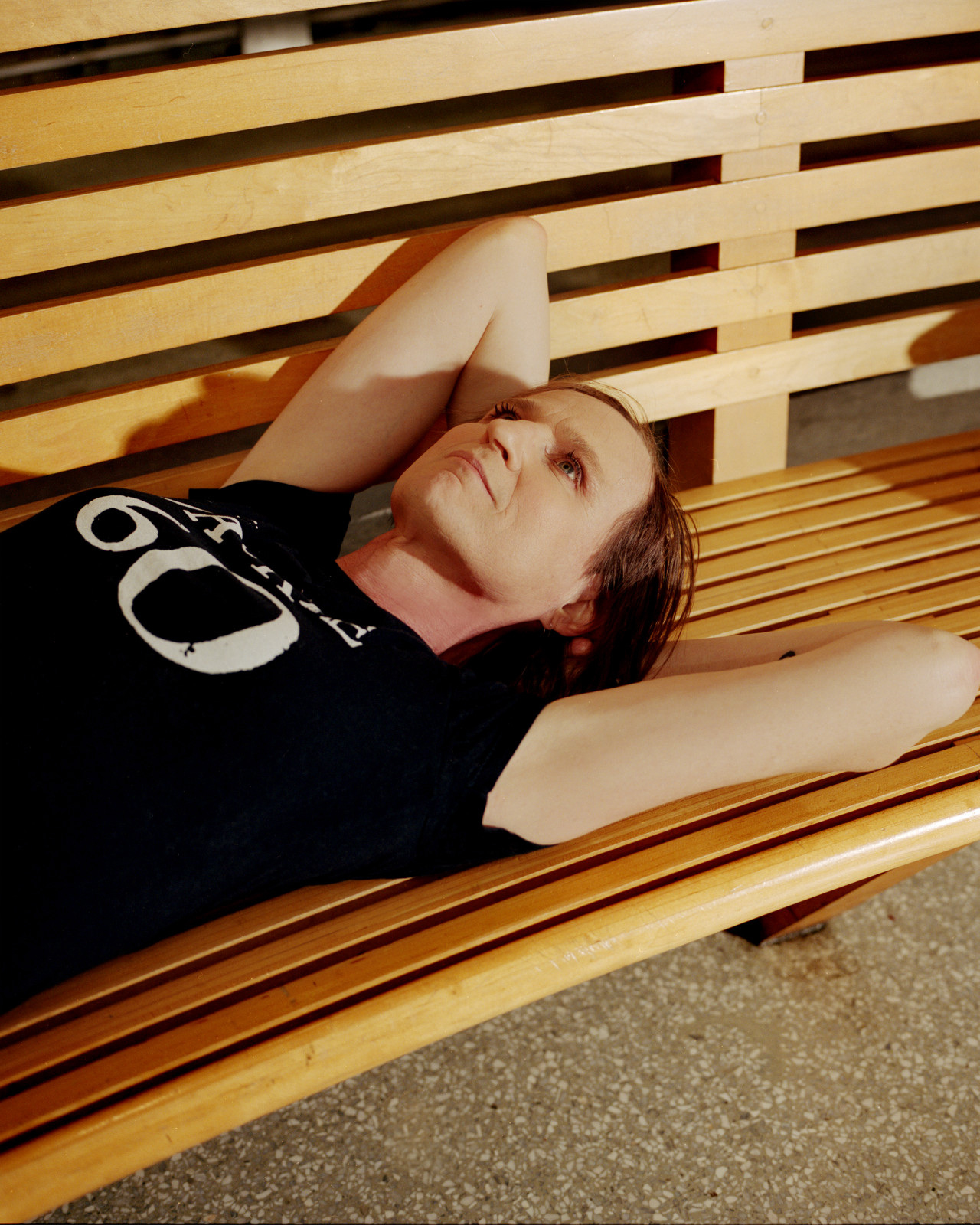
McKenzie Wark is known for her deep dives into the ever-shifting digital landscape. But the Australian scholar, who has previously published The Hacker Manifesto and Capital Is Dead, might have taken on her greatest challenge yet in her latest book, Raving, releasing this week. Capturing the evolving, informal, and unwieldy queer and trans rave scenes of New York, the work probes Wark’s time spent offline: hours on end spent dancing in fog-filled rooms or semi-legal outposts across the city. Readers are prompted to sift through chapters with titles like “Xeno-Euphoria” and “Ketamie Femmunism” to learn about the underground world she has come to inhabit (names and venues kept anonymous, of course). Taking over a stoop in Jackson Heights, Queens, Wark met up with DJ, rave activator, and community organizer Pauli Cakes for CULTURED to celebrate the release, discuss their shared interests, and to posit the inherent queerness of uninhibited dancing.
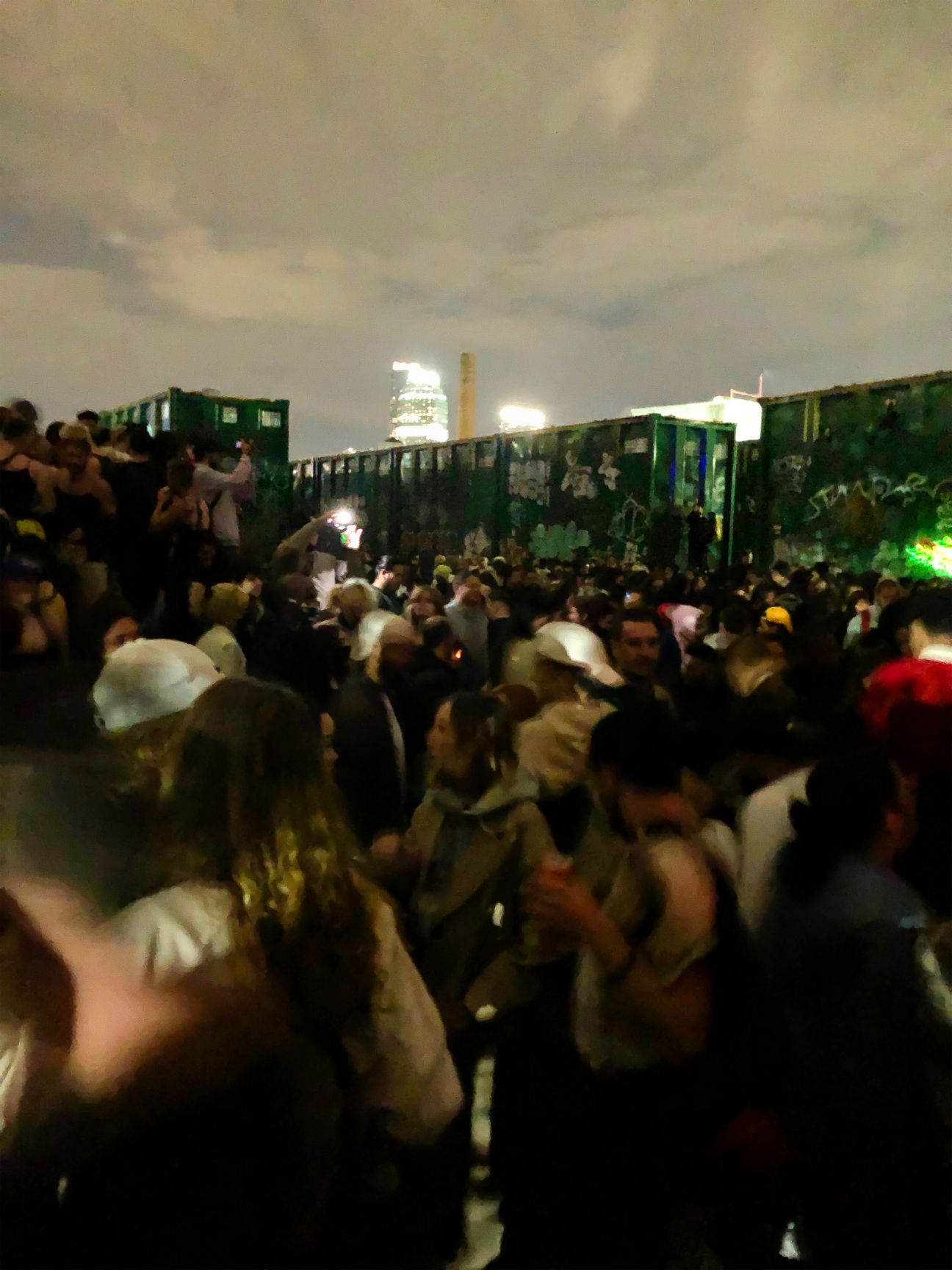
Pauli Cakes: How did you become involved in the New York rave scene?
McKenzie Wark: It was a little bit accidental. I wasn’t a hardcore raver, but it was something I’d done in the ‘90s. I’d been to Berlin and Amsterdam. There was a Sydney scene called doof, rather than techno, because it’s the sound of the bass.
Cakes: Oh like, “doof doof doof.” I love that.
Wark: Just imagine it in an Australian accent! I always liked dancing, but I wasn’t going to anything like that. I was raising kids here in Jackson Heights. Then I came out as a trans woman, and that fixed a lot of things in my life. But there was still this sort of low-lying dysphoria and nothing worked. I talked to my trans mom about it, and she was like, “Well, just come to the rave.” It became a regular thing.
Cakes: That’s so nice. Did you rave in Australia?
Wark: Yeah, there’s this whole scene of things that would happen in warehouses in the city and also what we call bush doof. It’s a bit like forest raves here, but there, it was a different landscape. You just drive around—and this is before GPS on your phone—following some vague directions, trying to listen for the doof or the flashing lights. The police would come shut it down and all that. Some of the warehouse parties were more like house music, and there was a gay house music scene. Techno was kind of a straight thing in those days, so it’s nice that there is queer techno now. One of the stories in my book is how that became a thing.
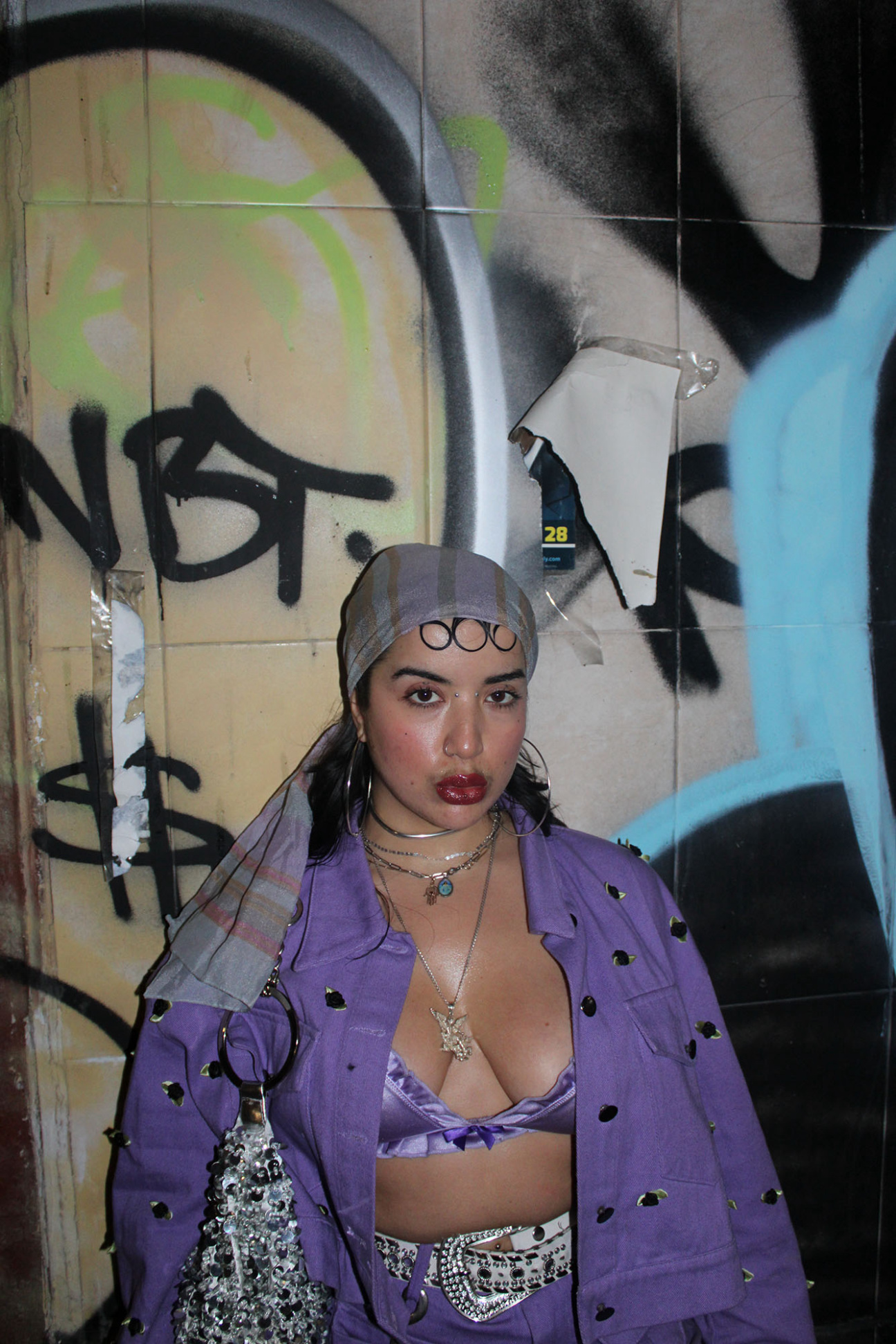
Cakes: Techno as a genre is so fluid. Electronic dance music defies genres, defies binaries. It never makes sense to me when there are these crazy, straight bro techno spaces cause the genre itself is nonbinary, is trans. I always talk about this with my friends; it’s transcendental, transmutational.
Wark: Techno broadly describes the kinds of music I find more appealing—it’s a little bit alien—so my theory is that there are versions of techno that aren’t really for any kind of human body at all. It’s really for aliens, and we’re all just trying to figure out how to find a space for ourselves in it.
Cakes: I feel like that describes what I’ve been hearing as this newer, genre-blending, and genre-bending resurgence of techno and electronic music. Looking at the history of techno or dance music in general, it dates back hundreds and thousands of years to samba, and four-on-the-floor dates back to these tribal movements, and spiritual dancing, and all these things that defy society and are essentially anti-establishment, anti-everything. It’s just people coming together, moving, and not in an organized way, but in a way that moves from feeling. Nightlife and rave culture, it’s the music, yes, but also the time, the place, the movement, the sounds that arise from us dancing with each other on top of the music.
Wark: Yeah, and I’ve had transcendant experiences at ridiculously packed raves, but sometimes you go for openers and there’s six feet between all the people cause there’s only twenty of you there. But the best thing is being there when it all ends. You walk out into daylight.
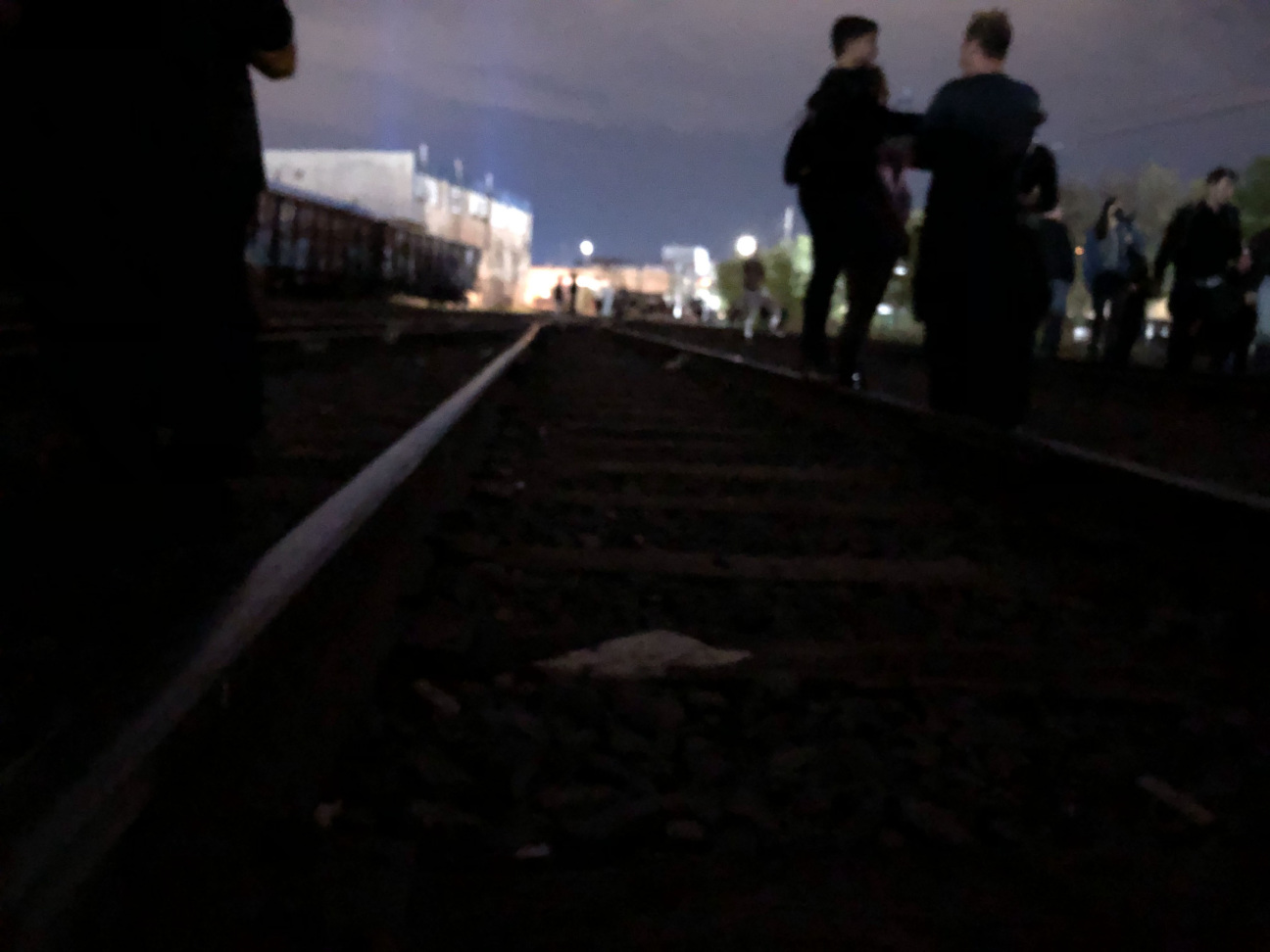
Cakes: Yes, that’s my favorite, too. When you see the fog in the distance arising, not just from the fog machine but from the people’s bodies, and you can feel the vibration of everything coming to this end.
Wark: Yeah, and then you can actually talk to people. You take your earplugs out and it’s like, Oh, hi!
Cakes: That’s the best, when it ends and everyone’s just smoking. That post-rave glow is great. How do you think the scene has evolved since you first started?
Wark: I mean, if that’s back to the ‘90s, then it kind of changed a lot. In those days it was vinyl mostly, so you didn’t get the really heavy sub-bass that you can now get. I used to go to Jackie 60 in the Meatpacking District when it was still a meatpacking district. There were literally dumpsters of rotting meat around it on the street. In the ‘90s, you wouldn’t have said it was queer. That wasn’t a word that was as widely used, but that was the vibe. That was, to me, the beginning of a queer scene that would be different from specifically gay parties, which are great and that I used to go to—I tried to be a gay man three times and failed. There’s something different when there’s not just that specific model of non-hetero sexuality. A lot of parties that I’m writing about in the book have a lot of straight people in them, it’s just straight people who understand that it works on gay rules. That’s relatively new. It’s harder to find spaces to do it like that. Parties that are illegal are just better because they are illegal. It’s just sort of more interesting in a way. Venue chasing becomes its own little artform.
Cakes: Absolutely, I have to agree with that 100 percent. It’s so much harder to throw parties than before. When the Ghost Ship fires in Oakland happened in 2016, there were new, nationwide regulations and laws on where you could throw parties and their capacities. A lot of places were getting busted and raided and had to close down after that. There was this almost unspoken change in what was going on and spaces felt more policed. Then, during the pandemic, when people were throwing things or even protests, things were getting violently raided. Now, in 2023, when I try to find venues and spaces to throw parties it’s nearly impossible. The lack of spaces watered down this scene a little bit.
Wark: On the other hand, business techno has arrived and there’s well-financed clubs. We’ll see how that changes the whole ecology. Where do we find our little marginalized spaces when that arrives?
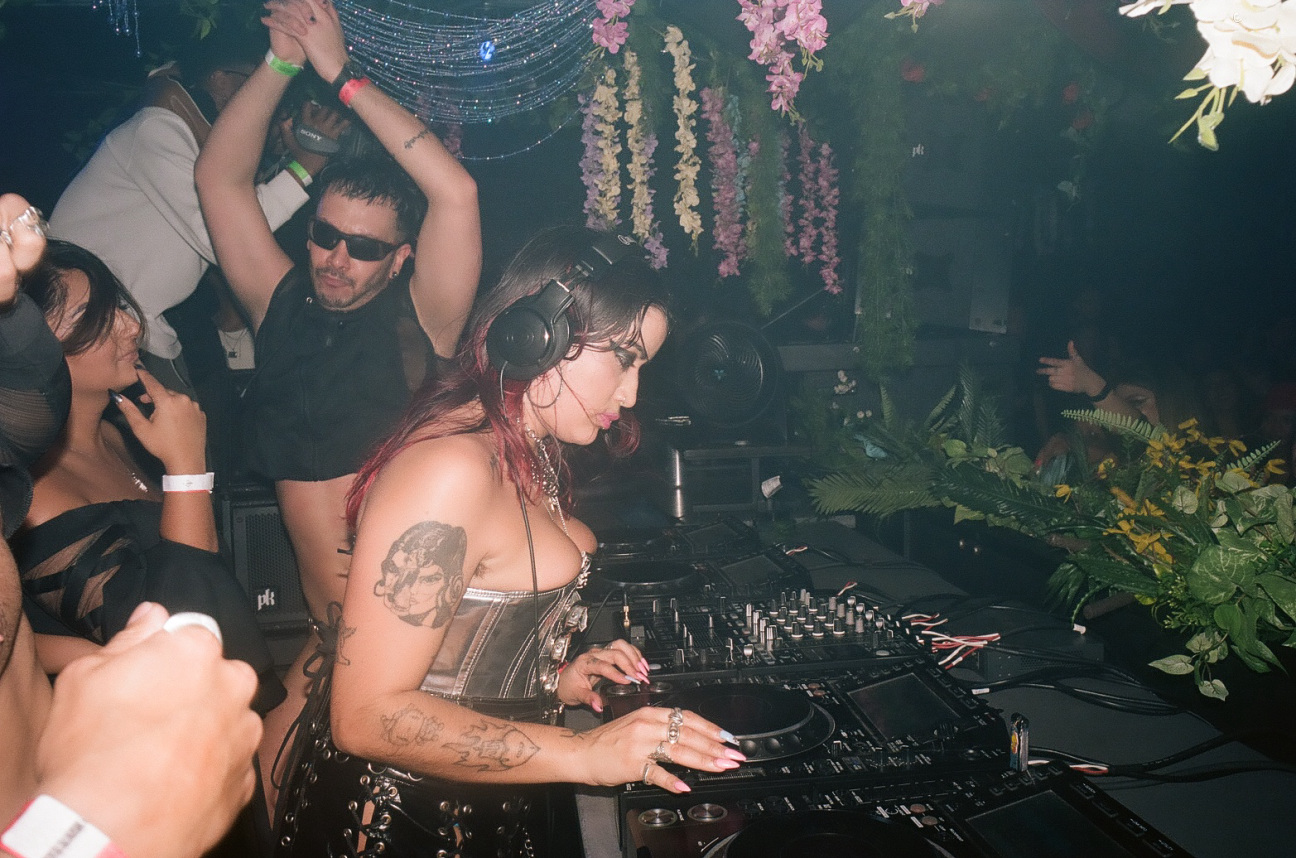
Cakes: Absolutely, and during the pandemic I was almost hoping that things would move more underground and that low-key spaces would arrive. But the rise of police presence and a new mayor who, in my opinion, things have felt way more policed–
Wark: He’s another [Rudy] Giuliani. It’s kind of surreal. You go to Berlin, where it’s a tourist industry, and the city profits off it. There’s clubs running all weekend and they essentially police themselves. We could have that. Not that that’s necessarily perfect in itself, but if you have that then you can have an underground on the fringes.
Cakes: Exactly, I always hope that more DIY spaces will open. With inflation, it’s really difficult for people who do have loving intentions to be able to afford rent and pay for all of the licenses and the things that it takes to open up a club. Why do you think the scene is particularly attractive to trans and queer individuals?
Wark: There’s parties specifically for the dolls and that’s not quite my world—all dolls are trans women, but not all trans women are dolls—but there’s a scene because trans women don’t have anywhere else, not being safe anywhere and not safe in the club either. It’s not utopia, but where you can just change the rules a little bit. Us being there isn’t notable, it’s just a fact. We’re just ordinary; no one pays us any specific attention usually. That’s rare, you know? I’m 61 years old, and I still get weird looks on the street. You’d think as an old woman that people would fucking give it up, but everyone’s got an opinion. There’s a certain intimacy about dancing, so it’s best if you can do it with people you minimally trust to be around. As my friend Nonlinear says, in this town you got to pay the federal tax, the state tax, the city tax, and the queer tax. You have to pay money to be around people who just get you and will let you be.
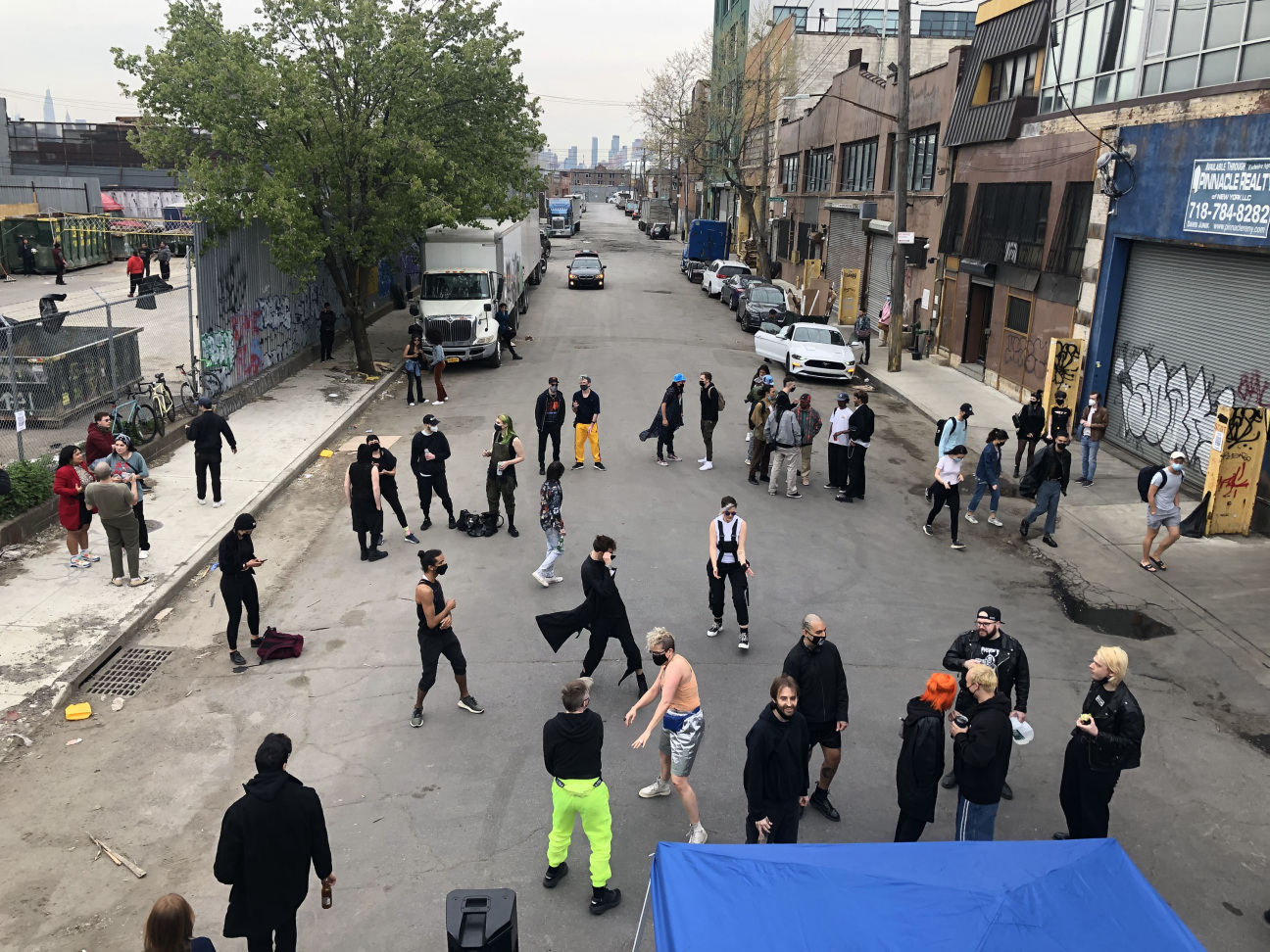
Cakes: Queerness, transness, goes hand in hand with music, dancing, liveliness, being in these spaces where you can let go of everything. Whether it’s a rave, whether it’s a house party, whether it’s a ball, spaces that center queer and trans people have an energy that is just so beautiful and so high.
Wark: Yeah, well, one of my sort of half-serious theories in the book is that dancing, if you do it right, will make you queer for the duration that you do it because you have to let the music fuck you. I mean, you can top it or bottom for it—it’s flexible—but there’s an intimacy with the music and a proximity to other bodies that has an eroticism to it.
Cakes: Yes, exactly. Music and nightlife and queer spaces give us the time and space to shapeshift and find different layers of ourselves and embody that, even if it’s just for a few minutes, or a lifetime. When everyone has a cell phone and is posting, is it possible to maintain these local scenes?
Wark: One of the best things about a good rave is the amount of time people are off their phone. The parties I like put stickers over cameras. I was just at a party that had a balcony and I could see every time the phone went on. It was just fog; I couldn’t see any bodies but I’d see the glow of the screen every now and then. It didn’t happen very often. It’s like no one can resist that temptation. The phone has this double role: you need it to create that little, local scene but then it’s an impediment sometimes.
Cakes: There were some really special renegades during the pandemic and some of those were my favorites. Nobody wanted to make videos because people were scared of getting canceled. I felt like everyone was more present with each other and there was more of a focus on care because we’re raving but also we could get busted by the police any second. We all really needed to take care of each other. That era was kind of special.
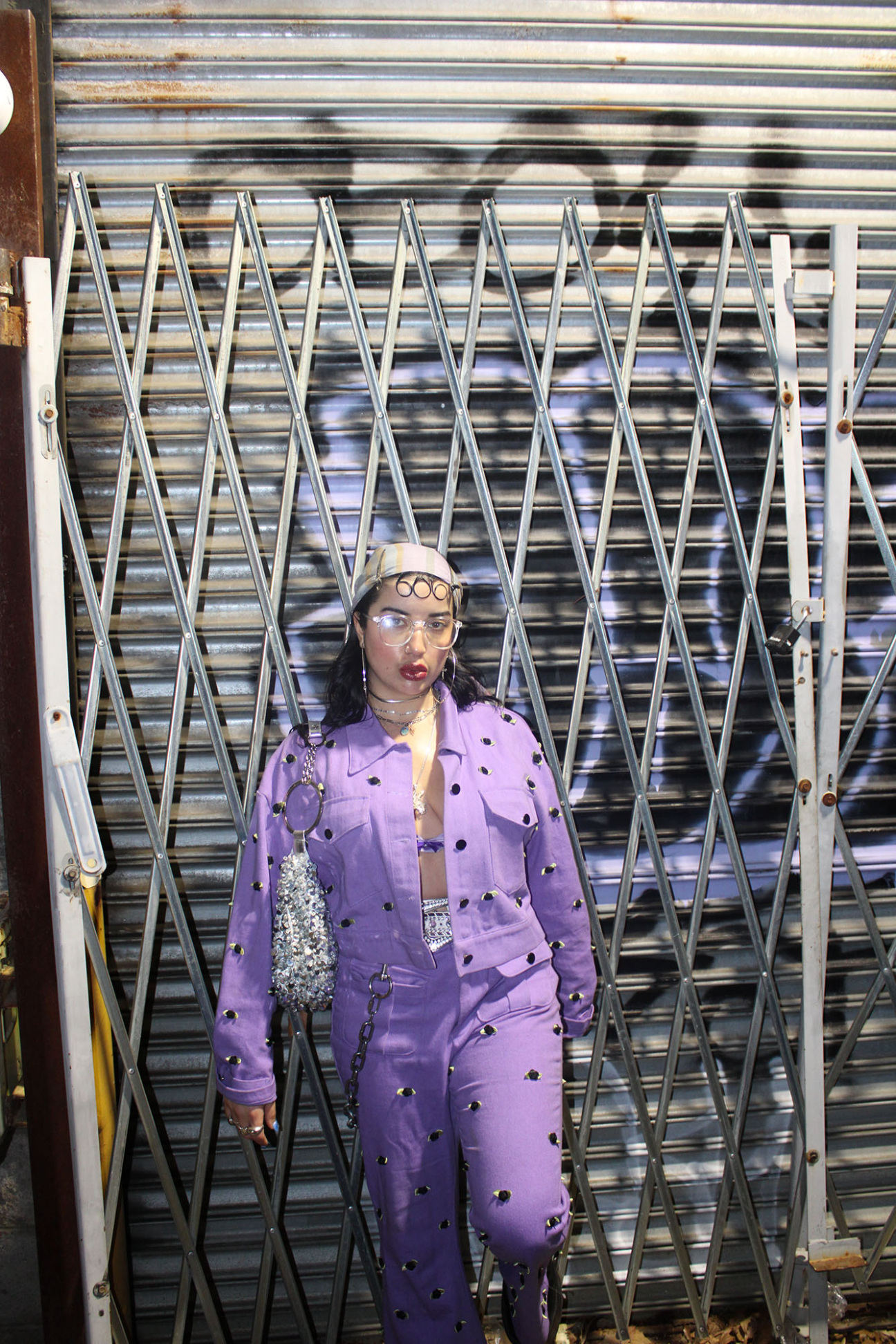
Wark: There was one that ended up on a dead end street in Red Hook. It was the third venue because it got pushed around by the police. You could see the Statue of Liberty in the background, Jasmine Infiniti playing.
Cakes: The experience of nightlife is visceral. How do you translate that onto the page?
Wark: Well, you’re not trying to represent it; you have to express it. I took a lot of notes, usually on the way home. I wouldn’t say it’s fiction, but I changed a lot of details in the book. There’s exactly 26 characters. Everyone’s a letter of the alphabet. They’ll recognize themselves, probably. Some people have serious day jobs and don’t need their boss to know that they take ketamine and rave before the morning, so I wanted to keep it a slightly secret world. The whole book is like a little love letter to the experiences that I’ve had and I just hope it’s received in that spirit. It’s not utopia, right? All the problems of the world pass through the door, but there’s just something enlightening about what you can try to do with that when we’re all there.
Cakes: That’s really special. Why do you think political organizing and nightlife fit so well together?
Wark: It’s not just that. I think a certain kind of rave culture is just the common, cultural social thread for people. Some of them are involved in fairly anarchist inspired politics or are artists. For some people it’s spiritual. It isn’t to me; I’m a third generation atheist, but I respect that this is a spiritual experience for some people. I feel a bit of that, weirdly. How are we to do things together and why? Well, we can all get together and dance. Everything that goes wrong in the world will go wrong in there. Everyone brings all their bullshit with them, but I think a good rave dissipates more aggression than it generates.
Cakes: Yeah, people are raving and maybe they don’t know each other, but they’re all somehow swaying in the same direction. It’s so beautiful. A good rave reminds me of a garden or an ecology out in the woods where all these plant species are so different from one another but they’re somehow moving together to create this majestic ecosystem.

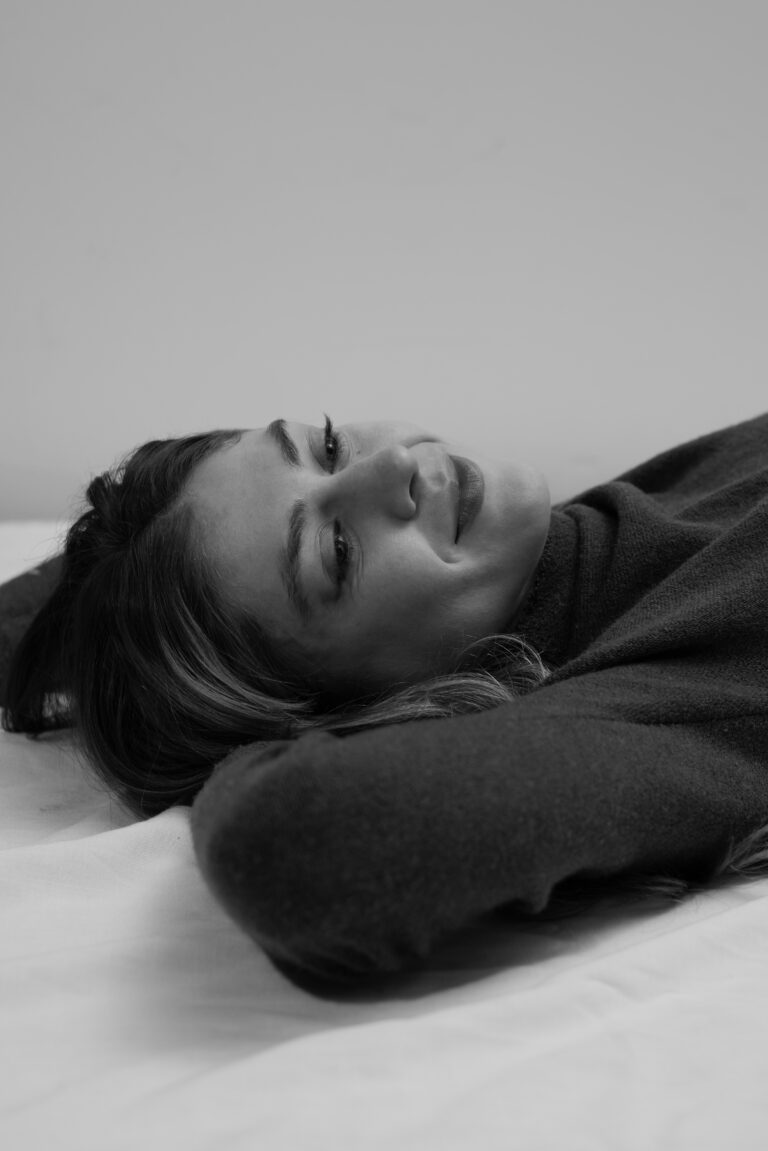
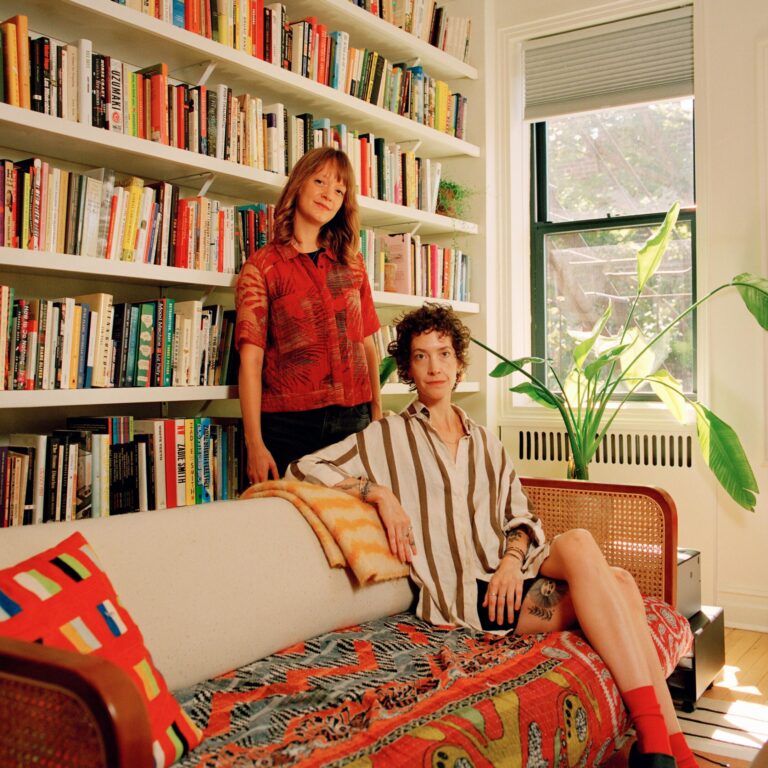


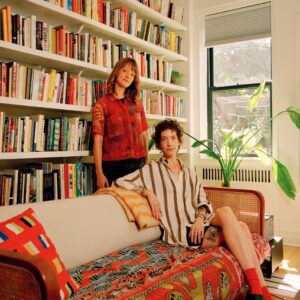
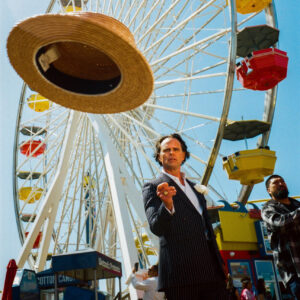



 in your life?
in your life?

